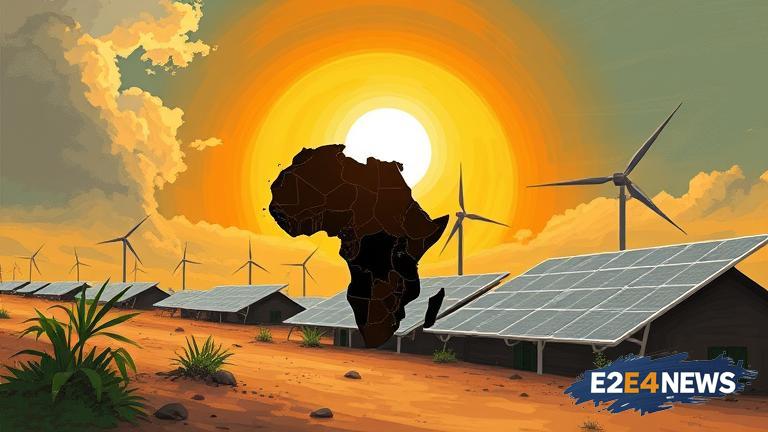The African continent is witnessing a significant shift towards renewable energy, driven by the need to address the pressing issues of energy access, energy security, and climate change. With many countries still struggling to provide electricity to their populations, renewable energy has emerged as a viable solution. Solar and wind power are becoming increasingly popular, with many African nations investing heavily in these sectors. The cost of renewable energy is decreasing, making it more competitive with fossil fuels. This trend is expected to continue, with the International Energy Agency (IEA) predicting that renewable energy will account for 60% of the world’s power generation by 2050. Africa’s renewable energy market is expected to grow significantly, with countries such as South Africa, Morocco, and Egypt leading the way. The African Union’s (AU) ambitious plan to generate 300 gigawatts of renewable energy by 2030 is a testament to the continent’s commitment to a sustainable energy future. Renewable energy can also help to reduce greenhouse gas emissions, which are a major contributor to climate change. Climate change is having a devastating impact on Africa, with rising temperatures, changing rainfall patterns, and increased frequency of extreme weather events. The use of renewable energy can help to mitigate these effects, while also providing energy access to millions of people. Many African countries are also exploring the potential of hydrokinetic energy, which harnesses the power of moving water to generate electricity. Geothermal energy is another area of focus, with countries such as Kenya and Ethiopia investing in this sector. The private sector is also playing a crucial role in Africa’s renewable energy revolution, with many companies investing in solar and wind farms. Governments are also providing incentives, such as tax breaks and feed-in tariffs, to encourage the development of renewable energy projects. However, despite the progress being made, there are still significant challenges to be overcome. These include the lack of infrastructure, limited access to financing, and the need for greater investment in research and development. The African Development Bank (AfDB) has pledged to invest $25 billion in renewable energy projects over the next five years, which is expected to help address some of these challenges. The bank’s president, Akinwumi Adesina, has emphasized the importance of renewable energy in driving economic growth and reducing poverty. The use of renewable energy can also help to create jobs, stimulate local economies, and improve energy security. In addition, renewable energy can help to reduce the burden on national grids, which are often struggling to meet demand. The development of mini-grids and off-grid systems is also becoming increasingly popular, providing energy access to remote and rural communities. Overall, Africa’s renewable energy revolution is gaining momentum, with many countries making significant strides in this sector. As the continent continues to grow and develop, it is likely that renewable energy will play an increasingly important role in meeting its energy needs.
